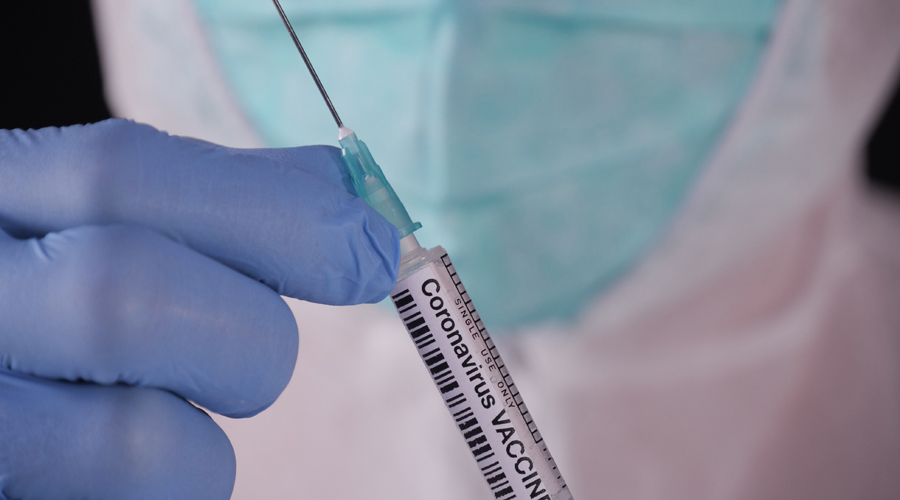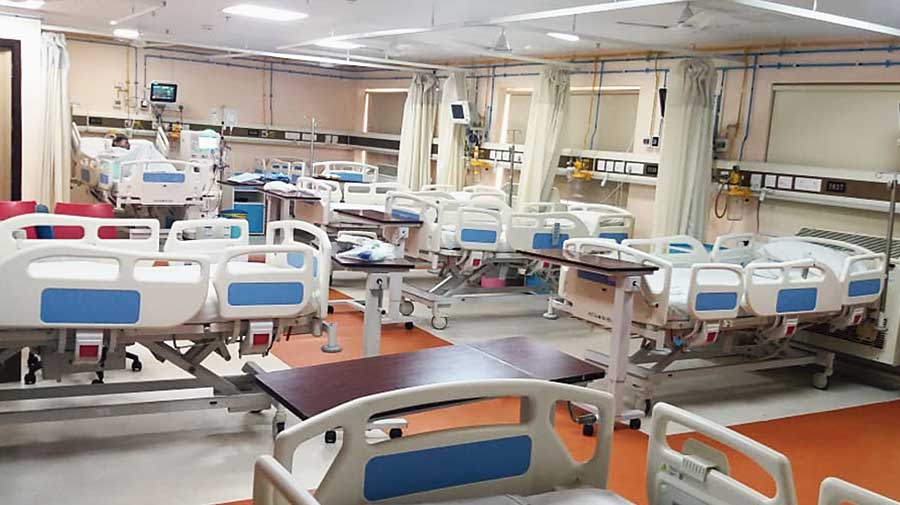The Centre on Tuesday waived clinical trial preconditions for emergency use authorisation of Covid-19 vaccines approved by select foreign regulatory agencies, seeking to augment India’s vaccine basket and accelerate the inoculation campaign.
The Union health ministry has accepted the recommendations of an expert panel to expedite emergency use authorisation of vaccines already approved by the US Food and Drug Administration, the European Medicines Agency, the regulatory agencies of Japan and the UK, and those listed by the World Health Organisation.
The move, advocated for weeks by sections of health experts, opens a window of opportunity for companies such as Pfizer, Moderna, and Johnson and Johnson to introduce their vaccines in India without the mandatory local clinical trials, health officials said.
“This is a liberal regulatory step that will increase access to vaccines manufactured in other countries,” Vinod Paul, chair of the National Expert Group on Vaccine Administration for Covid-19 (NEGVAC) and member of Niti Aayog, the government’s apex think tank, said.
“We invite vaccine makers such as Pfizer, Moderna and Johnson and Johnson … to be ready to come to India at the earliest possible,” Paul said, adding that the clinical trial waiver would apply only to Covid-19 vaccines given the current circumstances.
The NEGVAC have also recommended that the first 100 beneficiaries of each such foreign vaccine introduced in India should be monitored for seven days for safety outcomes before it is rolled out into the vaccination campaign.
Experts have urged the Indian government to allow entry of more Covid-19 vaccines to accelerate the inoculation campaign that has administered over 110 million doses across India since its start on January 16. But only about 13.6 million people — among an estimated 350 million potential beneficiaries — have received the two doses required for protection.
The campaign currently uses Covishield, the AstraZeneca vaccine produced by the Serum Institute of India, and Covaxin, a homegrown vaccine from Bharat Biotech. An adviser to the campaign has said Serum currently makes about 70 million doses per month, while Bharat produces about 10 million doses a month.
“This move will greatly expand the basket of options,” Dr Giridhar Babu, professor of epidemiology at the Indian Institute of Public Health, Bangalore, who is among those who had called for the introduction of additional vaccines into the campaign.
Babu and other experts tracking the vaccination campaign expect that the Centre will procure the vaccines and make them available through vaccination centres adopting the same process as with Covishield and Covaxin.
“I don’t think private sales are likely in the immediate future,” one expert said.
Pfizer has asserted it is selling its Covid-19 vaccines only to governnments worldwide. “We remain committed to continuing our engagement with the (Indian) government towards making the vaccine available for use in the government’s immunisation programme,” a Pfizer spokesperson told The Telegraph.
Experts also expect some tricky price negotiations. Pfizer’s price has been reported to be $19.50 per dose, while Moderna’s reported price is $32 to $37 per dose. The Indian government is procuring Covishield at Rs 210 per dose and Covaxin at Rs 290 per dose. The vaccines are free in public hospitals but those who opt to take them in private hosptials need to pay Rs 250 per dose.
“The government could play a facilitator in introducing the vaccines in India — ideally, local manufacturing would make them cost effective,” Babu said. “The government could negotiate a price and introduce them through private institutions with some reasonable margins.”
The government is hoping to accelerate the pace of the vaccination campaign to even higher than the current four million doses per day. “As the rate of vaccination increases, there is likely to be a demand-supply mismatch,” said Santanu Tripathi, former professor of pharmacology at the Calcutta School of Tropical Medicine. “The entry of more vaccines could help resolve or ease this mismatch.”











